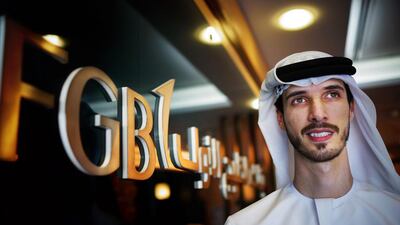About 20,000 Emiratis enter the job market every year, according to the Emirates National Development Programme (ENDP), which works on encouraging careers in the private sector.
But as well as the traditionally favoured public sector career paths, they should also look to new markets such as procurement and investor relations, say Emiratis who have made successes of those fields.
Ali Bin Masoud, 32, has been working as an investor relations analyst at FGB in Abu Dhabi for the last two years and says it is a “dynamic” division of the bank.
“This is not a very well-known field in the country but it is gaining popularity,” he says. “There is a high learning curve and it is very dynamic. You are interacting with different stakeholders, internal and external and need to be up to date with the bank, the economy, the outlook.
“There’s always something new going on. It’s great for Emiratis, especially young ones constantly looking to challenge themselves, stretch their limits and learn new things.”
Mr Bin Masoud’s role involves answering daily investor queries and attending investor meetings and conferences, working on quarterly earnings announcements, filing results to the Abu Dhabi Securities Exchange and putting together presentations and forecasts for the annual report, shareholders’ general meeting and investor day.
He holds a bachelor’s degree in business administration and a master’s in finance and worked at NBAD as an analyst before moving into investor relations.
The Middle East Investor Relations Association (Meira) has been working on initiatives since 2013 to get more Emiratis into this niche and says recent regulatory changes should result in an influx into the vocation.
Meira’s Emiratisation graduate programme, launched with Dubai Financial Market and Nasdaq Dubai, has been supported by internships at companies such as DP World, Emaar, Emirates NBD and HSBC.
“With the development of capital markets in the UAE, the investor relations profession has seen rapid development,” says Alex MacDonald-Vitale, the chairman of Meira. “Emiratis have started to look at it as a career option as it is an opportunity to work in finance while also developing skills in data analysis, public relations and marketing.”
He says that a regulatory change this year by the Securities and Commodities Authority now requires all companies listed on the UAE’s exchanges to establish an investor relations function, which is a “significant step towards embedding international standards in local market practice”. Investor relations officers must also now speak Arabic.
Another little-known niche career is procurement. Muna Zoubaa, 40, is a mother of five and the head of supply chain management at Abu Dhabi Motorsports Management. She joined the company six months before the first F1 race at Yas Marina Circuit in 2009, and works to acquire everything needed in racing, from spanners to special oils, often not available locally.
Having worked in procurement for 15 years, she has now set up an invite-only LinkedIn group, Women in Procurement, which has more than 500 members. She says the skill is in dealing with people and knowing how to negotiate.
“There is a lack of UAE nationals who have the right expertise or knowledge in the procurement and supply chain,” she says.
Anyone studying business administration, finance, accounting – or even IT – could look to procurement as a career, she adds. “We are shifting to category management and need specialised procurement. If you don’t have IT skills, you won’t understand complex procurement in IT.
“Emiratis are good speakers and, because of our development in the education sector and the mixed culture in our country, we as Emiratis have the skills to resolve conflicts and accept new challenges.”
And women have additional skills that make this a good option, she says. “Women are careful about their reputation when working with suppliers and money itself. In the past 15 years there has been a big shift in procurement and lots of women are choosing it as a career. But senior management is still male-dominated in the procurement and supply chain.”
The Chartered Institute of Procurement and Supply (Cips), which supports Ms Zoubaa’s group and for which she is a speaker and fellow, says half of its 900 UAE members are Emiratis.
“It is an emerging profession that is growing rapidly as well as being one that provides practitioners with important responsibilities in relation to compliance, ethics, governance and entrepreneurship,” says Sam Achampong, regional director for Cips Middle East & North Africa. “I believe this is a key attraction for aspiring Emiratis.”
He also says there is a growing number of “prominent Emirati role models in the industry”, such as Ms Zoubaa, something now drawing young nationals to the profession.
In the future, Ms Zoubaa hopes to pass on her knowledge and experience by teaching procurement, to develop “a new generation of UAE nationals”. “I want to pay it back to my country,” she says.
business@thenational.ae
Follow The National's Business section on Twitter

